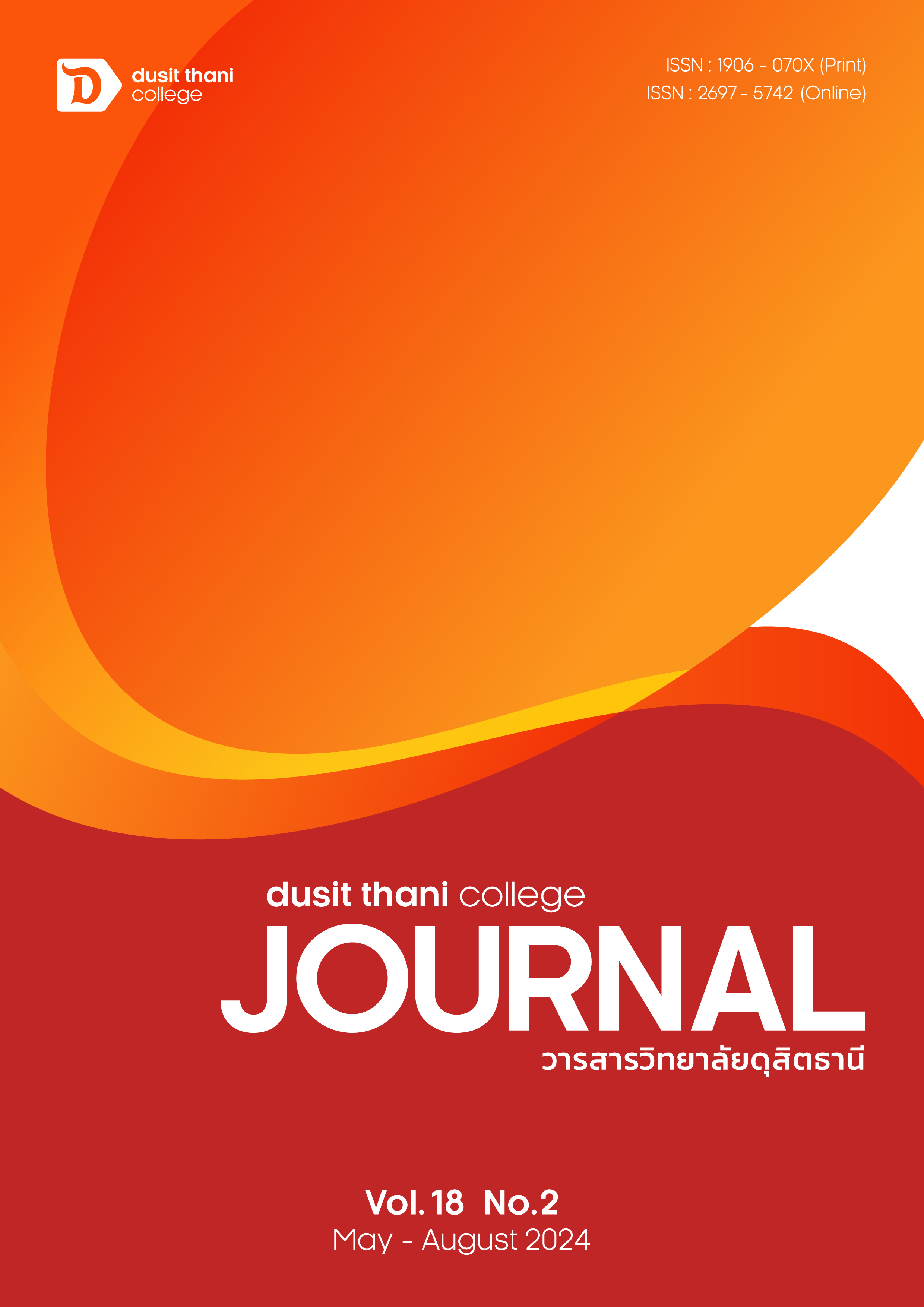แนวทางการพัฒนาการจัดการกีฬาเพื่อความเป็นเลิศของสถาบันอุดมศึกษาภาคใต้ ประเทศไทย
Main Article Content
บทคัดย่อ
การวิจัยครั้งนี้ มีวัตถุประสงค์เพื่อวิเคราะห์สภาพแวดล้อมด้านการจัดการกีฬาเพื่อความเป็นเลิศของสถาบัน อุดมศึกษาภาคใต้ ประเทศไทย และเพื่อเสนอแนวทางการพัฒนาการจัดการกีฬาเพื่อความเป็นเลิศของสถาบันอุดมศึกษาภาคใต้ ประเทศไทย เครื่องมือที่ใช้ในการเก็บรวบรวมข้อมูล คือ แบบสัมภาษณ์กึ่งโครงสร้าง และการจัดสนทนากลุ่ม โดยเลือกกลุ่มตัวอย่างแบบเฉพาะเจาะจง ซึ่งการวิเคราะห์สภาพแวดล้อมด้านการจัดการกีฬาเพื่อความเป็นเลิศของสถาบันอุดมศึกษาภาคใต้ ประเทศไทย ใช้ตัวแทนที่มีส่วนเกี่ยวข้องกับการจัดการกีฬาของสถาบันอุดมศึกษาภาคใต้ ขนาดตัวอย่าง 42 ราย และการกำหนดแนวทางการพัฒนาการจัดการกีฬาเพื่อความเป็นเลิศของสถาบันอุดมศึกษาภาคใต้ ประเทศไทย กลุ่มตัวอย่างประกอบด้วย ผู้ทรงคุณวุฒิที่มีความเชี่ยวชาญ ผู้มีความรู้และประสบการณ์ในการจัดการกีฬาเพื่อความเป็นเลิศของสถาบันอุดมศึกษาภาคใต้ จำนวน 10 ราย โดยทำการวิเคราะห์ข้อมูลเชิงเนื้อหา
ผลการวิจัยพบว่า การจัดการกีฬาเพื่อความเป็นเลิศในสถาบันอุดมศึกษาภาคใต้ ประเทศไทย มีจุดแข็งที่สำคัญ
คือ มีการส่งเสริมทางด้านกีฬา ทั้งกีฬาเพื่อสุขภาพและเพื่อความเป็นเลิศ หลายสถาบันมีการตั้งคณะกรรมการกีฬาเพื่อความเป็นเลิศเพื่อดูแลเรื่องการจัดการกีฬาเพื่อความเป็นเลิศในสถาบันอุดมศึกษา บุคลากรมีวัฒนธรรมการทำงานที่อุทิศตนเพื่อส่วนรวม สนามแข่งขันมีความพร้อมและมีมาตรฐาน มีนักวิทยาศาสตร์การกีฬาที่เชี่ยวชาญ ความสามารถและทักษะของนักกีฬา ความตั้งใจฝึกซ้อมของนักกีฬา และความสามารถในการสรรหาตัวนักกีฬา อย่างไรก็ดี ยังมีจุดอ่อนที่สำคัญอยู่หลายประการคือ ผู้บริหารให้ความสำคัญกับความก้าวหน้าในสายอาชีพของบุคลากรน้อย ขาดการสนับสนุนในการเข้าร่วมแข่งขันในเวทีต่าง ๆ นักกีฬาไม่สามารถต่อยอดความสามารถได้ ขาดครูพี่เลี้ยงที่ดูแลเรื่องวินัยทั้งด้านการเรียนและกีฬาควบคู่กัน ขาดการจัดทำแผนบริหารสถานการณ์ฉุกเฉินที่รัดกุม ควรจัดให้มีนักวิทยาศาสตร์การกีฬา นักจิตวิทยาทางการกีฬา และนักโภชนาการกีฬาประจำสถาบัน ยังไม่มีการจัดทำเกณฑ์/คู่มือการเข้าเป็นนักกีฬาของสถาบัน มีการนำความรู้จากงานวิจัยมาใช้ประโยชน์เพื่อการกีฬาที่น้อย ขาดการบูรณาการผลงานทางวิชาการเพื่อใช้ประโยชน์ทางกีฬาร่วมกัน ค่าตอบแทนน้อย ไม่สามารถเข้าถึงอุปกรณ์ที่ส่งเสริมทักษะด้านกีฬาได้ ขาดการประเมิน/ทดสอบสมรรถภาพของนักกีฬา และไม่มีการตรวจร่างกายของนักกีฬาโดยแพทย์ การจัดสรรเงินอุดหนุนไม่เพียงพอ ขาดแคลนผู้ฝึกสอนที่มีความชำนาญเฉพาะทาง ผู้ฝึกสอนมีทักษะการสื่อสารภาษาอังกฤษในระดับต่ำ ไม่มีการจัดทำปฏิทินการแข่งขันในภาพรวม นักกีฬามีผลงานที่โดดเด่นน้อย นอกจากนี้ การพัฒนากีฬาเพื่อความเป็นเลิศ ยังพบอุปสรรคที่สำคัญ คือ งบประมาณไม่เพียงพอ ปัญหาเศรษฐกิจในพื้นที่ทำให้ภาคเอกชนมีกำลังในการสนับสนุนลดลง การขอรับทุนการสนับสนุนทางด้านวิจัยและพัฒนามีการแข่งขันสูง การปฏิบัติศาสนกิจอาจมีข้อจำกัดสำหรับการฝึกซ้อมในบางช่วงเวลา ระเบียบทางราชการส่งผลให้การเบิกจ่ายใช้ระยะเวลานาน สภาพภูมิอากาศของภาคใต้ อย่างไรก็ดี ยังมีโอกาสหนุนเสริมที่สำคัญ คือ สามารถประสานกับภาครัฐในการฝึกอบรมพัฒนาได้ มีองค์กรต่าง ๆ ช่วยสนับสนุนในการจัดแข่งขัน มีแหล่งทุนภายนอกที่หลากหลาย อยู่ใกล้กับประเทศเพื่อนบ้านจึงสามารถพัฒนากีฬาร่วมกัน และผลักดันไปสู่ระดับนานาชาติได้ง่าย ทั้งนี้ จากการวิเคราะห์สภาพแวดล้อมและข้อคิดเห็นของกลุ่มตัวอย่างเกี่ยวกับการจัดการกีฬาเพื่อความเป็นเลิศของสถาบันอุดมศึกษาภาคใต้ สามารถสรุปแนวทางการพัฒนาการจัดการกีฬาเพื่อความเป็นเลิศของสถาบันอุดมศึกษาภาคใต้ ประเทศไทย ได้ 5 ด้าน ได้แก่ 1) ด้านการสร้างขวัญกำลังใจ 2) ด้านกระบวนการคัดเลือก การเตรียมความพร้อม การฝึกซ้อม และส่งเสริมประสบการณ์การแข่งขัน 3) ด้านการยกระดับศักยภาพและสมรรถนะผู้ฝึกสอนกีฬาเพื่อความเป็นเลิศในสถาบันอุดมศึกษาภาคใต้ 4) ด้านการเพิ่มประสิทธิภาพการบริหารจัดการสถานที่ อุปกรณ์กีฬา และสิ่งอำนวยความสะดวก และ 5) ด้านการสนับสนุนและจัดหางบประมาณพัฒนากีฬาเพื่อความเป็นเลิศ
Article Details

อนุญาตภายใต้เงื่อนไข Creative Commons Attribution-NonCommercial-NoDerivatives 4.0 International License.
นโยบายการพิจารณากลั่นกรองบทความ
- บทความวิจัยและบทความวิชาการทุกเรื่องที่จะได้รับการตีพิมพ์ต้องผ่านการพิจารณากลั่นกรองโดยผู้ทรงคุณวุฒิ (Peer Review) ในสาขาที่เกี่ยวข้อง จำนวน 3 ท่าน/บทความ
- บทความ ข้อความ ภาพประกอบและตารางประกอบที่ลงตีพิมพ์ในวารสารเป็นความคิดเห็นส่วนตัวของผู้เขียน กองบรรณาธิการไม่จำเป็นต้องเห็นด้วยเสมอไป และไม่มีส่วนรับผิดชอบใด ๆ ถือเป็นความรับผิดชอบของผู้เขียนแต่เพียงผู้เดียว
- บทความที่จะได้รับการตีพิมพ์จะต้องไม่เคยตีพิมพ์ เผยแพร่ที่ใดมาก่อน และไม่อยู่ระหว่างการพิจารณาของวารสารฉบับอื่น หากตรวจสอบพบว่ามีการตีพิมพ์ซ้ำซ้อน ถือเป็นความรับผิดชอบของผู้เขียนแต่เพียงผู้เดียว
- บทความใดที่ผู้อ่านเห็นว่าได้มีการลอกเลียนหรือแอบอ้างโดยปราศจากการอ้างอิง หรือทำให้เข้าใจผิดว่าเป็นผลงานของผู้เขียน กรุณาแจ้งให้กองบรรณาธิการวารสารทราบจะเป็นพระคุณยิ่ง
เอกสารอ้างอิง
Boonyatisthan, E., (2010). Professional SWOT analysis guide. Bangkok: Panyachon.
Chaiwong, S., Boonyin, W., and Pakdeewong, P. (2022). Policy proposals for sports-based learning management for youth in border provinces, doctoral thesis in development studies, Naresuan University.
De Bosscher, V., De Knop, P., van Bottenburg, M., and Shibli, S. (2006). A conceptual framework for analyzing sports policy factors leading to international sporting success. European Sport Management Quarterly, 6(2), 185-215.
Kwanboonchan, R. (2008). Strategic Plan for Professional Sports Development (2006-2009). Bangkok: Sports Science Department, Chulalongkorn University.
Kurupan, S. (2009). Modern Sports Competition and Sporting Excellence. Sports Journal, 6(1), 10.
Kulawanit, P. (1996). Documents for discussion on confidently stepping into old age care for the elderly. Faculty of Medicine, Chulalongkorn University.
Maharom, S. (2008). Components influencing the excellence in sports of military educational institutions. Journal of Exercise Science and Sports. Faculty of Sports Science, Burapha University, 5(2), 17-20.
Meithaisong, S. and Others. (2008). Development of an effective model for implementing national sports development strategies into integrated practices in military educational institutions. Maha Sarakham: Military Educational Institution.
Ministry of Tourism and Sports. (2007). National Tourism Development Plan 2550-2554. Bangkok: National Tourism Policy Committee, Ministry of Tourism and Sports.
Ministry of Tourism and Sports. (2012). National Sports Development Plan Version 5 (B.E. 2555-2559). Bangkok: Ministry of Tourism and Sports.
Ministry of Tourism and Sports. (2020). National Sports Development Plan Version 7 (B.E. 2565-2670). Bangkok: Ministry of Tourism and Sports.
Prasertsiripan, S. (1996). Indicators of Thai Sports Development. Journal of Physical Education, Health Education, and Recreation, 42(2), 23-27.
Sport Authority of Thailand. (2020). Strategic Plan for Sports of Thailand (B.E. 2565-2670). Bangkok: Sport Authority of Thailand.
Techawanit, S. (September 4, 1997). Professional sports. Retrieved from http://www.smat.or.th/view/5a8faf2c46d46a0cde6fb3ef
Watcharasin, N. (2020). Strategic management guidelines for developing security businesses. Journal of Mahachulalongkornrajavidyalaya University of Humanities Review, 6(1), 263-276.


